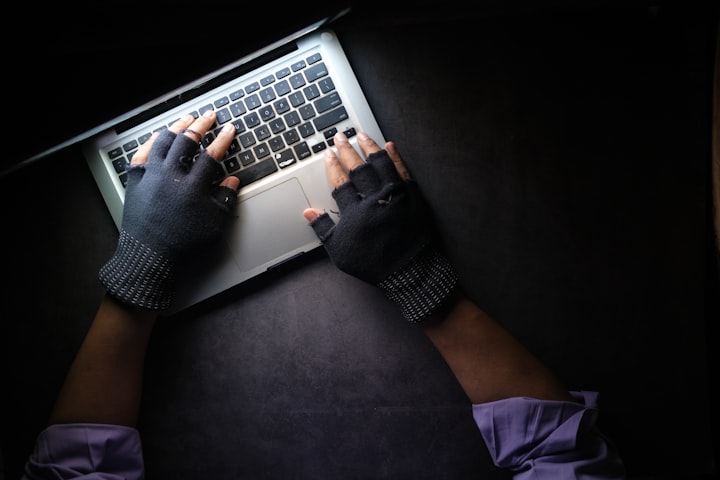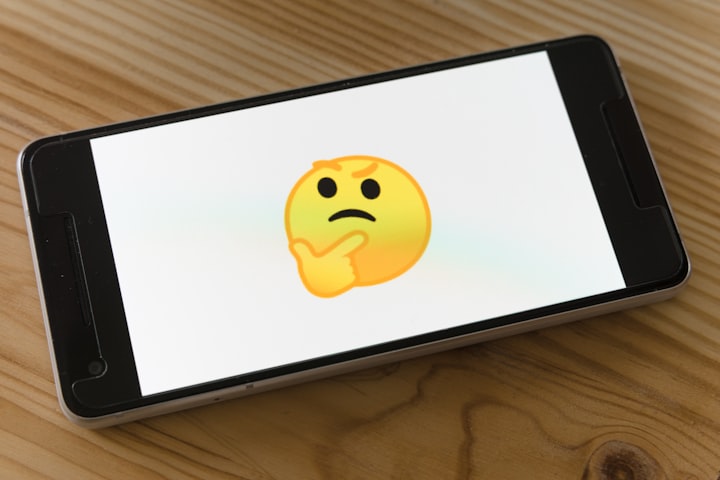Plagiarism: What's the Harm, and Why You Should Care
Yes. Plagiarism is theft. Yes. It can be illegal. And Yes. You should care!

Author's Note: Most of the information contained within this article has been obtained through my years of experience in academic and professional settings, with no particular source to be cited. However, I have included Wikipedia and Oxford University under the "Sources" section at the bottom, because they were used to confirm that my assertions were accurate, and because they are excellent sources for anyone looking to understand this topic more fully.
Plagiarism - The act of stealing the intellectual property of another person or institution.
That word has quite an impact upon us write-righters who take pride in our work, staying up all night to run references and Google the correct way to cite a source, because we find the idea of plagiarizing someone else's intellectual property, even inadvertently, to be appalling, and when we discover that another so-called "writer" has thrown ethics to the wind like they're nothing more than a handful of dust, we are sickened, angered, even personally offended for the person or institution that has been ripped off.
Sadly, there are many individuals who do not feel the way that we ethically-inclined writers do, and these thieves, as they should be called, feel no shame in stealing the finished product of what may have been another writer's sleepless nights and long days of research, outlining, writing, editing, rewriting, and citing.

Generally speaking, plagiarists fall into one of two categories:
- A person who lacks the skill or knowledge to write on a topic well or is lazy and shamelessly seeks out someone else's intellectual property to steal and pass off as their own.
- A person who is uninformed on the rules and subtleties of citing and paraphrasing sources and inadvertently plagiarizes a source.
Did you know? It only takes 3 consecutive, unchanged words to equate plagiarism! And even when properly sourcing, a writer can be committing plagiarism if they rely too heavily on unoriginal works!
* Check out this Excellent Source for how to properly cite other works in your writing: Purdue OWL
Both of these types of plagiarism are unacceptable and should be penalized.
However, I don't think that there are many who would disagree that the first type of plagiarism is far more insidious than the other, and deserves a much harsher punishment.
This begs the question, then:
What are the consequences for plagiarism, and why should we care?
Sadly, in most circumstances, plagiarism is not considered a crime, and there is relatively little backlash for those who resort to this disgusting and pathetic lack of ethics and talent. (The only talent a plagiarist has is for deception!)
- In an academic setting, a professor generally passes submitted works of writing through a plagiarism checker, which scans the documents for similarities across the internet and other academic institutions and databases. If plagiarism is detected, the student will generally fail the assignment and possibly the course, as well as face suspension and possible expulsion from the university. If the student has scholarships, they may lose all financial support.
- In a professional setting, a person who is found to have plagiarized may be suspended or fired from their job and could lose their license, depending upon circumstances and field of employment.
- There are also occasions when plagiarism could result in criminal or civil charges, ranging from fines to imprisonment. Generally, those who face legal consequences for plagiarism are those who have violated a copyright law.
- For those who commit plagiarism in online settings, such as Vocal or Medium, there is sadly little in the way of consequences for these individuals. Personally, I believe that all persons who take it upon themselves to knowingly steal other people's intellectual property should be subject to criminal and civil charges. Yet, in this digital age that we find ourselves, it is a simple task of copying and pasting to commit this intellectual crime, and many who write or publish online have become victim to plagiarizers.
And THAT is precisely why we should care!
Because any one of us could find ourselves to be the victim of plagiarism!
I personally know many creators who have woken up to discover that their work has been plagiarized and posted on various writing platforms - other people who have no legal or ethical claim to their intellectual property are making actual money on a work that is of their own creative minds.
How devastating that must be to discover!
Furthermore, anyone who is discovered to be a plagiarist can (and hopefully will) be blacklisted by future publishers, employers, platforms, even acquaintances. Because who among us legit and ethical writers wants to associate with known plagiarists?
Platforms could develop a reputation for allowing plagiarism, and those who write on that platform could become guilty by association, resulting in dire consequences to the writers and the platform itself!
This is why it is so important that we, as a community of creators, take this so seriously. Because we could be considered guilty by association. And more importantly, each and every one of us could be the victim of plagiarism.
Imagine waking up one day to see your story on the Best Seller's List - with someone else's name on the cover!
Can you imagine the heartache? The grief? The FURY that you would feel?
Each one of us must do our part, then, to not only be informed about what plagiarism is, but what we can do to fight it! And really, there is no better defense than information!
So, then, how can you learn to Spot Plagiarism?
Let's just be honest for a minute here: if a "writer" resorts to plagiarism, then they really are not skilled and creative enough to write their own work. So, make a habit of examining the works that you read. Chances are, you may start seeing discrepancies in some creator's writing.
For example, if a creator often writes with a lot of CAPS and shorter, improperly punctuated sentences, and then, suddenly, has a perfectly punctuated and eloquently stated sentence, paragraph, or article... Well, that might be a good time to stop and imitate that emoji with the raised eyebrow and finger to the chin and take a closer look.

Oftentimes, a simple Google search of a sentence or paragraph will reveal the deception. (How pathetic is it, really, if a "writer" uses entire paragraphs of someone else's work without citing?)
Sometimes, it may be that a creator simply doesn't understand that if they use a bit of information or a quote, they should cite their source. Or maybe they know they should but don't know how. This is still plagiarism, but it's almost excusable.
However, many times, you may find entire articles that have chunks of information that is not contained within quotes or cited. This is called "Mosaic Plagiarism" and is, regrettably, very common in online platforms.
If you find plagiarism, what should you do?
THIS is a tricky question! And I have personally seen this handled very well and very poorly.
- If you can and you feel safe doing so, alert the creator or writer themselves and give them the opportunity to fix their mistake.
- If you cannot or do not feel safe reaching out directly to the creator, report the story to the platform. Vocal has a flag story option that is very easy to find!
Hopefully, a reputable platform that recognizes the potential risks to their own brand that is possible by allowing plagiarism to happen on their platform will be motivated to do the ethical and honorable thing by proactively screening for plagiarism and responding swiftly when it is discovered.
Repeat offenders should really be banned from that site and become persona-non-Grata to other ethical creators and platforms.
Ideally, platforms in this digital age will begin employing similar methods to universities that screen for plagiarism and penalize those who resort to this despicable and pitiful act of theft.
Granted, there is only so much an online platform can do to prevent plagiarism, but that is why it is so important that we, the writers, do our due diligence in staying informed and on the lookout, both for our own work and that of others. After all, we could be their next victim!
*** Ultimately, no plagiarist should be allowed to benefit either monetarily or with notoriety from stealing another creator's work! ***
This is the first in a series of articles about Plagiarism! Keep on the lookout for my next article coming soon!
Trivia: Do you know the origins of the word "Plagiarism?" - Look for the answer in my next article!
SOURCES:
Wikipedia contributors. "Plagiarism." Wikipedia, The Free Encyclopedia. Wikipedia, The Free Encyclopedia, 10 May. 2022. https://en.wikipedia.org/wiki/Plagiarism. Accessed 12 May 2022.
"Plagiarism." Oxford University, 2022. https://www.ox.ac.uk/students/academic/guidance/skills/plagiarism. Accessed 12 May 2022.
Author's Final Note: Thank you so much for taking the time to read this article, if you enjoyed it, please leave your Comments & Insights. Tips, Pledges, and Subscriptions are HUGELY Appreciated and usually buy treats for my fur babies!
AND CLICK HERE to join Vocal + and benefit from the full REWARDS available!
And check out my Award-Winning Poem (Recipient of the David Middleton Poetry Award!)
About the Creator
Lena Folkert
Alaskan Grown Freelance Writer 🤍 Lover of Prose
Former Deckhand & Barista 🤍 Always a Pleaser & Eggshell-Walker
Lifelong Animal Lover & Whisperer 🤍 Ever the Student & Seeker
Traveler 🤍 Dreamer 🤍 Wanderer
Happily Lost 🤍 Luckily in Love
Reader insights
Outstanding
Excellent work. Looking forward to reading more!
Top insights
Expert insights and opinions
Arguments were carefully researched and presented
Easy to read and follow
Well-structured & engaging content
On-point and relevant
Writing reflected the title & theme
Eye opening
Niche topic & fresh perspectives
Masterful proofreading
Zero grammar & spelling mistakes
Heartfelt and relatable
The story invoked strong personal emotions
Compelling and original writing
Creative use of language & vocab
Excellent storytelling
Original narrative & well developed characters







Comments (7)
You have a true talent for writing. I must say that this was a very well written piece that I also enjoyed a lot.
very nice
I invite all writers to plagiarize me. Maybe it's safe, maybe it's a game or an experiment, maybe I'm just confident you won't want to. There's only one way to find out.
Nice job. Which makes joining writing sites like vocal all the more important. They allow you to prove that you came up with an idea first.
Very insightful piece, Lena! Thanks for providing info on stopping plagiarists. Many writers I know have been finding entire digital works (i.e. ebooks) added to online "free libraries," and had to fight to get them removed. This impacts a writer's income and reputation, and has to be stopped.
Excellent read!
Great piece. As a writer, I run everything I write through either Copyscape or Grammarly's plagiarism checker, although I think Copyscape is better. Despite that, I've had some clients come back to me and tell me they've found plagiarism in some of my written articles. I agree that we should be on the lookout though.